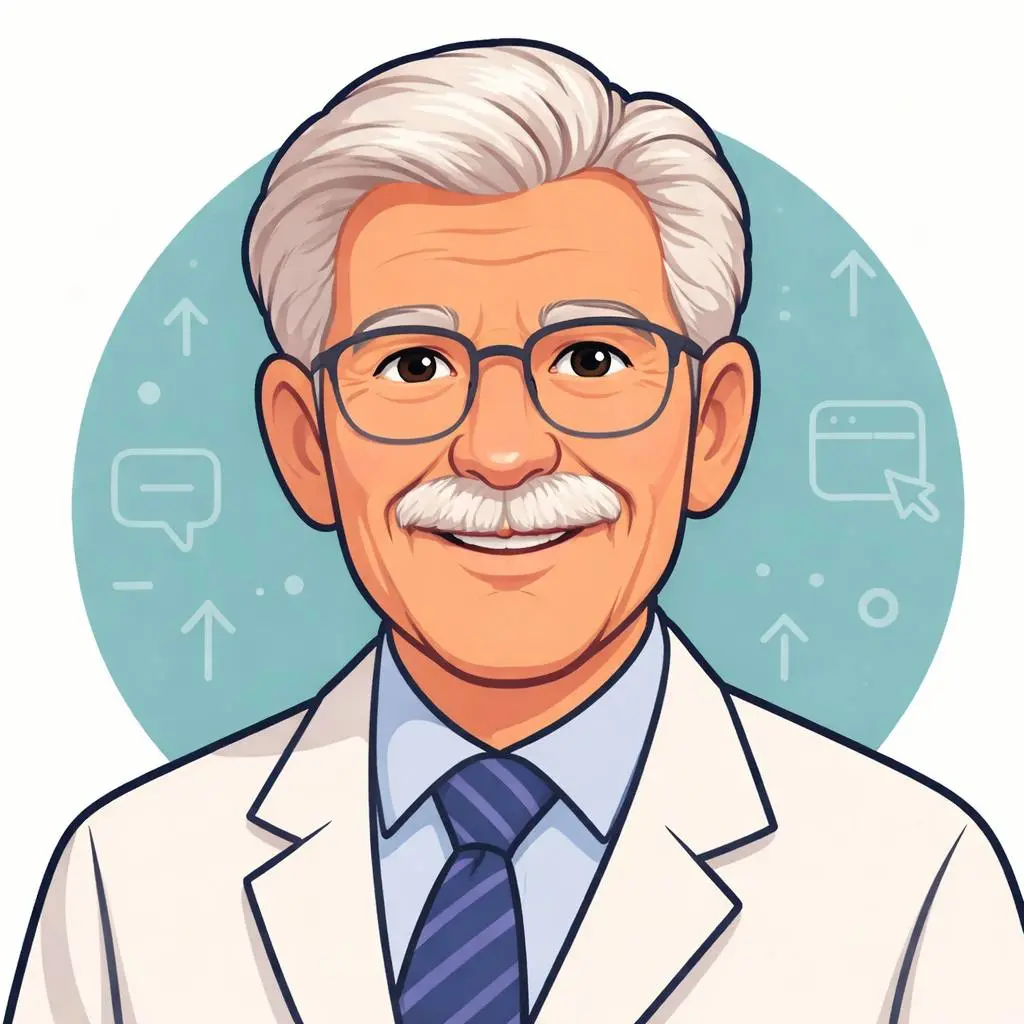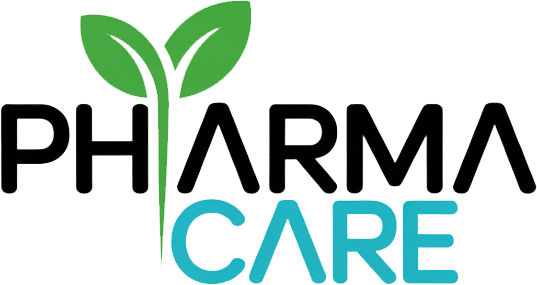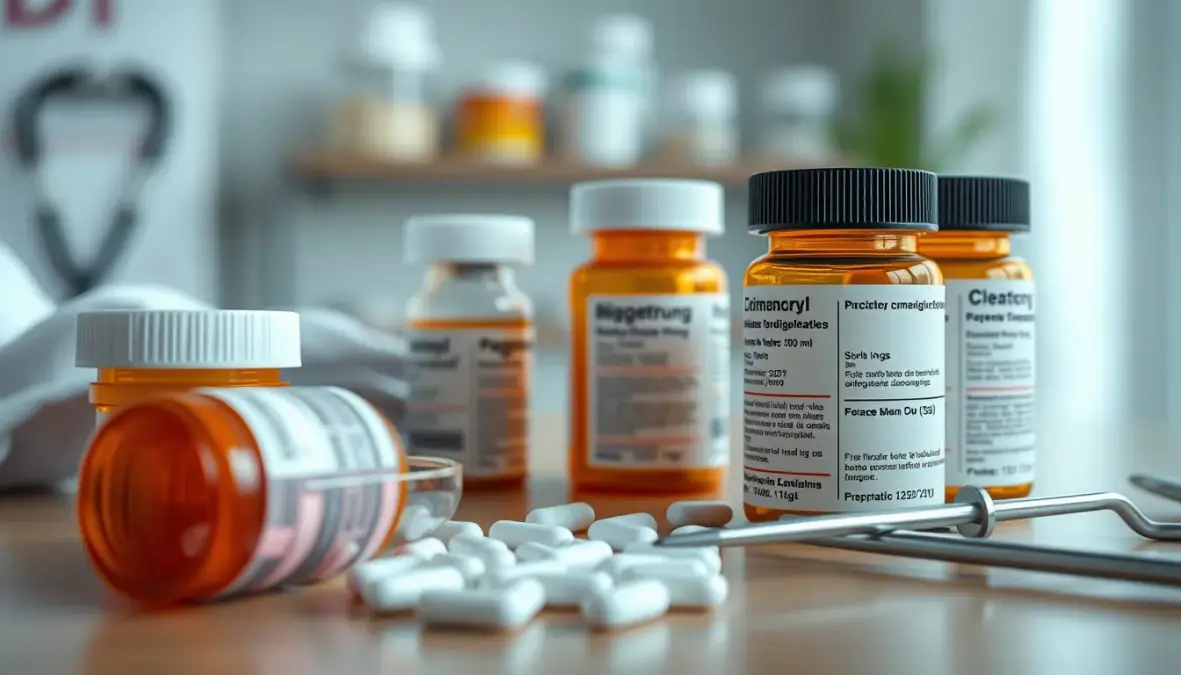In a world where the pace of life is increasing, managing family health is becoming an increasingly complex task. One of the most important aspects of managing family health is the correct management of medications. Whether it is regular medications, medications to treat temporary problems, or medications for emergencies, proper planning of the family medication system can significantly improve the quality of life and prevent health complications. In this article, we at Pharma Care will present to you everything you need to know about managing medications in the family and how to plan the family medicine cabinet effectively and safely.
The importance of proper planning of medications in the family
Proper planning of medications and family health is not just a matter of convenience. It is an issue with significant health implications. Studies show that medication errors are responsible for thousands of hospitalizations each year in Israel, a significant portion of which could be prevented through proper medication management.
When it comes to managing medications in the family, the unique needs of each family member – from infants to the elderly – must be taken into account. Each age group faces different challenges and requires tailored attention.
Building an effective family medicine cabinet
A well-organized medicine cabinet is the foundation for managing your medications and your family's health. Here are some important principles for building an effective medicine cabinet:
- Suitable location – Choose a dry, cool place and high enough to keep out of the reach of children.
- Organization by categories – Arrange the medications by type: painkillers, fever reducers, medications to treat digestive problems, etc.
- Personal separation – If there are family members who take regular medications, assign each of them a separate, clearly marked place.
- Clear marking – Make sure each medication is clearly labeled with the name of the medication, who it is intended for, and instructions for taking it.
- Validity check – Periodically check expiration dates and discard expired medications.
Essential medicines for every family medicine cabinet
A basic family medicine cabinet should contain a number of essential medications and medical supplies. Below is a list of recommended items:
| category | Recommended items | Main uses |
|---|---|---|
| Painkillers and antipyretics | Paracetamol, ibuprofen | Headaches, muscle aches, fever |
| Digestive system medications | Heartburn medications, antidiarrheals, mild laxatives | Common digestive problems |
| Allergy medications | Antihistamines | Allergic reactions, itching |
| Wound care equipment | Plasters, bandages, disinfectant, antibiotic ointment | Treatment of minor injuries |
Managing regular medications in the family
Many families are faced with the need to manage regular medications for one or more family members. Managing medications within the family requires special attention when it comes to medications that are taken regularly.
3 steps to effectively manage regular medications:
- Create an organized schedule – Prepare a weekly table detailing the times each family member takes their medication.
- Using distribution boxes – Boxes divided by days and hours can be very helpful in tracking medication intake.
- Setting reminders – Use apps or phone notifications to remind you when to take your medication.
Communication with the family doctor and pharmacist
Good communication with healthcare professionals is an essential component of medication management and family health. The doctor and pharmacist are important partners in planning medication therapy.
Tips for effective communication with your doctor and pharmacist:
- Make an updated list of all medications that family members are taking, including nutritional supplements and vitamins.
- Report any side effects or changes in health after starting a new medication.
- Don't hesitate to ask questions about drug interactions or possible alternatives.
- Ask for a detailed explanation of how to take the medication and the possible side effects.
Dealing with special needs in medication management
Many families face unique challenges in managing medication, such as caring for children, the elderly, or family members with disabilities. Here are some recommendations for dealing with these situations:
Medication management for children:
- Use syringes or special measuring spoons for administering liquid medications.
- Do not label medications as "candy" to prevent uncontrolled consumption.
- Explain to children of an appropriate age the importance of medications and their proper use.
Medication management for the elderly:
- Use medication boxes with audible or visual reminders.
- Regularly check your medication list to avoid duplications or dangerous interactions.
- Consider using professional medication management services for complex cases.
Preventing medication errors
Medication errors can be dangerous, especially when it comes to administering medication to an entire family. Here are some strategies to prevent errors:
| Type of error | Prevention strategy |
|---|---|
| Incorrect dosage | Always use accurate measuring tools and write down the correct dosage. |
| Switching between medications | Store medications in their original packaging with clear labels. |
| You forgot a dose. | Use reminders and weekly distribution boxes |
| Double take | Keep a medication diary or use a dedicated app. |
Adapting medication management to the family lifestyle
Medication management and family health should be tailored to the family's unique lifestyle. Families with particularly busy schedules or families who travel a lot need to adapt medication management strategies to their lifestyle.
Managing medications while traveling:
- Prepare a separate travel medicine kit with enough supplies for the entire trip and extra in reserve.
- Keep a copy of your prescriptions or a list of medications you take regularly.
- Inquire in advance about the availability of medications at your travel destination, especially when traveling abroad.
- Pack medications in your carry-on bag and not in the suitcase that is sent to the belly of the plane.
Using technology for family medication management
Modern technology offers many solutions that can help with family medication management. Medication management apps, automatic reminders, and smart medicine boxes are just some of the solutions available today.
Popular medication management apps include options like:
- Medication reminders
- Monitoring medication inventory
- Documentation of side effects
- Sharing information with other family members or medical staff
- Scanning information about drug interactions
Education on the proper use of medications
An important part of managing medications and family health is educating all family members on the proper and responsible use of medications. This is an ongoing process that should be tailored to the age and level of understanding of each family member.
Important points for education on the correct use of medications:
- Explain the importance of taking medications exactly as directed.
- Teach family members to read labels and understand the information on them.
- Emphasize the dangers of using medications not prescribed for them.
- Encourage reporting of side effects or changes in health status.
- Explain the difference between prescription and over-the-counter medications and the caution required when using both.
Frequently Asked Questions
How can I help an elderly family member manage their medications?
Managing medication for an elderly family member requires a sensitive and respectful approach. Start by assessing their abilities and needs. Consider using weekly distribution boxes, phone reminders, or dedicated apps. In complex cases, consider the assistance of a nurse or a professional medication management service. It is important to keep an up-to-date list of all medications and take it to every medical visit.
Is it worth purchasing prescription drugs online?
Buying prescription drugs online can be convenient, but it is important to take precautions. Only purchase medications from licensed and reputable pharmacies. Make sure the site requires a valid doctor’s prescription and offers the option of consulting with a pharmacist. Beware of sites that offer prescription drugs without a prescription or at unusually low prices. At Pharma Care, we offer a reliable and safe online service for purchasing medications.
What do you do with expired medications?
Expired medications may be ineffective and even dangerous. Do not throw medications in the regular trash or pour them down the sink, as this may pollute the environment. The correct way is to return them to the pharmacy, where there are special containers for collecting old medications. Most pharmacies in Israel, including the Pharma Care chain, accept expired medications for safe disposal.
How to manage medications for children with chronic illnesses?
Managing medication for children with chronic illnesses requires special attention. Create a regular and consistent routine for taking medication. Use accurate measuring tools and adapt the form of the medication (liquid, pill, inhaler) to the child's abilities. Involve the child in the process according to his age and explain to him the importance of the medication. Inform everyone who cares for the child (kindergarten teacher, teacher, babysitter) about the medication and the instructions for taking it.
How to deal with multiple medications (polypharmacy)?
Multi-medication (taking 5 or more medications) increases the risk of side effects and drug interactions. Ask your doctor to periodically review all medications and consider whether they are still necessary. Use a well-organized list or medication management app. Consider seeking advice from a clinical pharmacist who specializes in complex medication management. At Pharma Care, we offer a professional medication management consulting service for complex cases.
Medical Disclaimer: The information in this article is for general informational purposes only and is not a substitute for professional medical advice, diagnosis, or treatment. Always consult a physician or qualified medical professional regarding any medical question or health condition. Never disregard or delay seeking professional medical advice because of something you have read in this article. If you think you may be having a medical emergency, call Magen David Adom immediately (101) or go to the nearest emergency room.

פרופ’ אלון גרין הוא מומחה לפסיכיאטריה קלינית ומחקר תרופתי, עם התמחות בפיתוח והתאמת תרופות מרשם למגוון מצבים נוירו-פסיכיאטריים. בעל ניסיון של למעלה מ־35 שנה בעבודה קלינית ואקדמית, וכיהן כמרצה ופרופסור אורח במספר אוניברסיטאות מובילות בארץ ובחו”ל. עמד בראש יחידות מחקר וטיפול בבתי חולים ציבוריים ומרכזים רפואיים מתקדמים. תחומי עיסוקו כוללים קשב וריכוז (ADHD), הפרעות חרדה והרגעה, דיכאון קליני והפרעות מצב רוח, וכן טיפולים תרופתיים תומכי דיאטה ואיזון מטבולי. משלב גישות מבוססות ראיות עם חדשנות פרמקולוגית, ופרסם עשרות מאמרים מקצועיים בכתבי עת מדעיים, תוך תרומה משמעותית להבנת מנגנוני פעולה של תרופות והשפעתן הקלינית.







